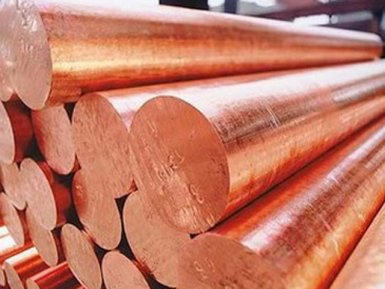Processing, rolling and deformation of tungsten

Are you interested in processing plastic deformation — rolling and stamping — of tungsten and its alloys from the supplier company AvecGlob? Here you will find interesting information on this topic /
General Provisions
In terms of its plastic properties, tungsten is similar to molybdenum. These two metals have the same electrical conductivity and resistivity, the coefficient of thermal expansion and about the same resistance to corrosion with mineral acids. Both have high strength at temperatures above 1093 ° C, but since the melting point of tungsten is higher, it retains considerable strength at higher temperatures than molybdenum. The modulus of elasticity for tungsten is approximately 25% higher than that of molybdenum, and its density is almost twice that of molybdenum. All industrially produced tungsten alloys are produced by powder metallurgy methods. The metal is available in the form of a rod, wire, plate, sheet and forgings. For some special applications, tungsten alloys can be processed from blanks produced by vacuum arc melting technology, but this method is expensive, and therefore applied on a limited scale.
Supplier — AvekGlob company — offers at a reasonable price from the manufacturer in a wide range of rolled products and forgings made of tungsten and its alloys. The supplier guarantees the timely delivery of products to any address specified by the consumer.
Treatment of tungsten and its alloys
The fabrication of tungsten and its alloys is a multi-step process that converts the metal from the original massive state (rods or ingots) to a more form suitable for subsequent processing (sheet, pipe, wire) and, at the same time, improves its physical properties. The exact manufacturing details depend on the method used to compact the metal and the desired type of product. To increase the plastic characteristics, tungsten is forged or pressed, while the powdered material, because of its finely dispersed structure,
and less susceptibility to cracking, are immediately used for processing.
Tungsten is usually processed below its recrystallization temperature, because the recrystallized metal tends to be brittle. During plastic processing, the recrystallization temperature decreases, at lower stages of the initial workpiece lower temperatures are used.
Forged tungsten can be prone to hot stamping, as well as extrusion, resulting in finished products. The operating deformation temperature is usually 1100 ° C or higher, depending on the grain size and the type of pressure treatment process.
Some tungsten alloys are processed by liquid-phase sintering of compacts of tungsten powder with nickel-copper, iron-nickel, iron-copper or nickel-cobalt-molybdenum combinations, where tungsten usually contains 85 to 95% alloy by weight.
Supplier — AvekGlob Company — offers to purchase various profiles of a circle and rod, which are made of tungsten and tungsten alloys. Products can be bought at a price formed on the basis of European and world standards of production. Implementation is possible in bulk and retail, for regular customers, a flexible system of discounts operates.


